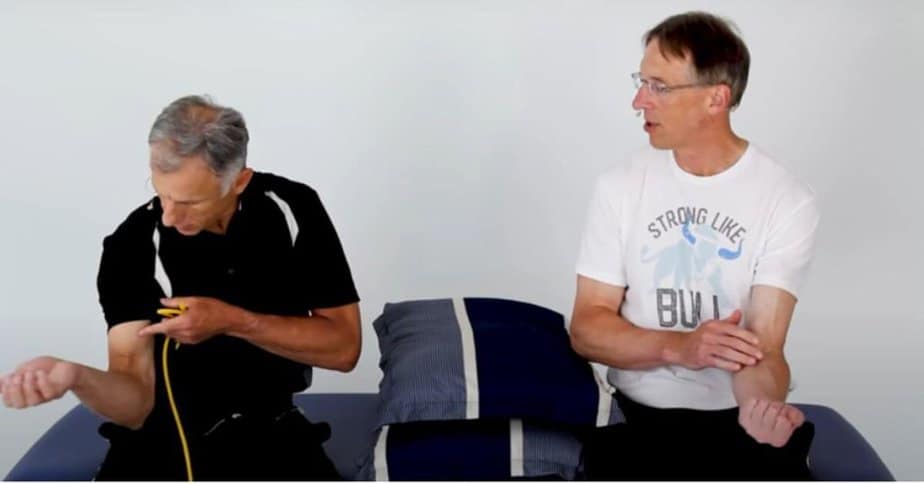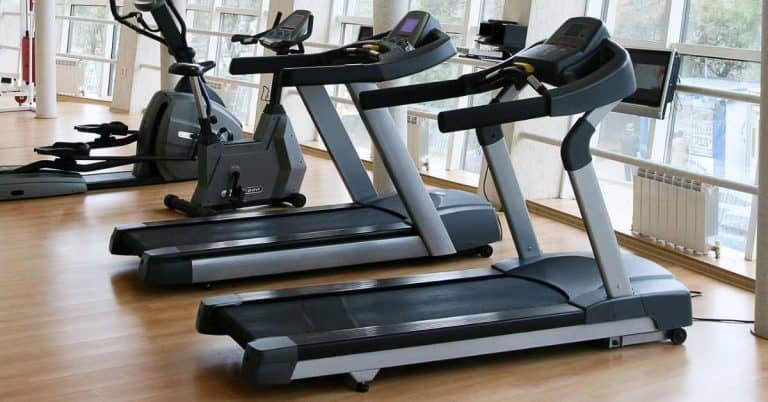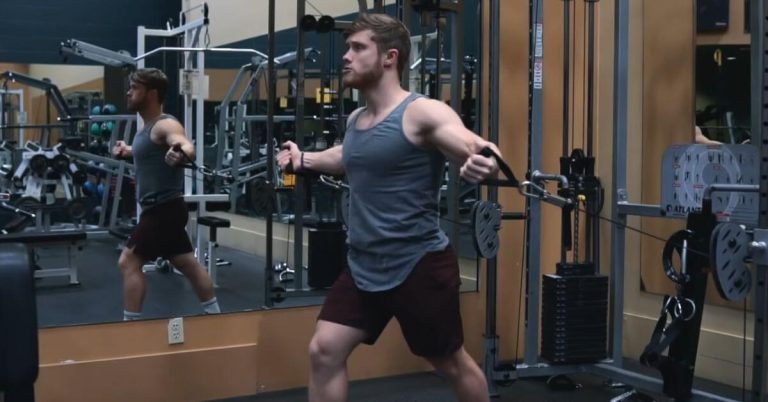Why Does My Bicep Cramp When I Flex? Understanding the Causes and Solutions
Last Updated on October 12, 2023 by Justin Harris
Why Does My Bicep Cramp When I Flex: When you flex your bicep, it may cramp due to lack of magnesium, calcium, and potassium in your body. Increasing these nutrients through foods like bananas, almonds, hazelnuts, and dark leafy greens can help alleviate bicep cramps.
Additionally, bicep pain can occur from lifting heavy objects or participating in repetitive movements during physical activities. Stretching the affected area, massaging it, and applying heat or ice can provide relief. Painkillers like ibuprofen and acetaminophen may also help manage the pain.

Understanding the causes and remedies for bicep cramps can help prevent and alleviate the discomfort associated with this condition.
Why Does My Bicep Cramp When I Flex?
Lorem ipsum dolor sit amet, consectetur adipiscing elit. Repetitive movements are the most common cause of bicep cramps when flexing. These cramps can be experienced while lifting something heavy or engaging in certain types of physical activity, such as sports, that involve the repetitious use of the bicep muscles. Lack of magnesium, calcium, and potassium can also contribute to cramps.
To prevent bicep cramps, it is important to stretch the affected area, massage it with your hands or a massage roller, and apply heat or ice. Additionally, taking painkillers such as ibuprofen and acetaminophen may provide relief. Overall, understanding the causes and taking appropriate preventative measures can help alleviate bicep cramps.
Common Causes Of Bicep Cramps
Common Causes of Bicep Cramps:
- Dehydration: Dehydration can lead to muscle cramps, including bicep cramps. It is important to stay hydrated throughout the day to prevent this.
- Electrolyte Imbalances: Lack of important electrolytes such as magnesium, calcium, and potassium can contribute to muscle cramps, including those in the biceps.
Prevention And Solutions For Bicep Cramps
When it comes to preventing bicep cramps, there are a few strategies you can implement. Firstly, staying hydrated and maintaining proper electrolyte balance is key. Dehydration and imbalanced electrolyte levels can increase the likelihood of muscle cramps, so make sure to drink enough water and consume electrolyte-rich foods or beverages. Secondly, stretching before and after exercising can help warm up and cool down the muscles, reducing the risk of cramping.
Additionally, cross-training and varying your exercises can help avoid repetitive strains on the bicep muscles. Lastly, maintaining a balanced diet that is rich in essential nutrients can support muscle health and reduce the frequency of cramps. Including foods high in magnesium, calcium, and potassium can be particularly beneficial.
Read Also,
- Are 13 Inch Biceps Good
- Are 16 Inch Biceps Good
- Are 50 Lb Dumbbells Enough
- Are Face Pulls Good for Rear Delts
- Are Spaghettios Good for Weight Loss
- Are Pull Ups Better Than Lat Pulldown
- Why Does Pre Workout Make Me Tired
- Why Doesn’t Creatine Dissolve? Find the Solution Now!
- Why Does My Sternum Hurt When I Do Dips? Find Relief Now!
- Why Does Weight Feel Heavier Some Days? Unraveling the Mystery
Instant Relief Techniques For Bicep Cramps
When it comes to instant relief techniques for bicep cramps, there are a few strategies you can try. First, massage the affected area with your hands or a massage roller. This can help to relax the muscles and relieve tension. Additionally, applying heat or ice packs to the cramping bicep can provide relief. You can use an ice pack or a heating pad to soothe the area, or even take a warm bath. Finally, if the pain is severe, you may consider taking painkillers such as ibuprofen or acetaminophen for temporary relief.
When To Seek Medical Attention
Cramps in the biceps when flexing can be uncomfortable and concerning. In most cases, bicep cramps are not a cause for alarm and can be relieved with simple measures like stretching the affected area, massaging the muscle, or applying heat or ice. However, there are situations when medical attention may be necessary.
If you experience chronic or severe cramps that persist despite home remedies, it is recommended to seek medical attention. Additionally, if the cramps are accompanied by other concerning symptoms such as weakness, swelling, or loss of sensation, it is important to consult a healthcare professional.
It is important to note that cramps can be caused by various factors, including dehydration, nutrient deficiencies, overuse of the muscle, or nerve and muscle injuries. Understanding the underlying cause of your bicep cramps can help determine the most appropriate treatment. If you have any concerns or questions, it is always best to consult with a healthcare provider for proper evaluation and guidance.
Conclusion
Experiencing a bicep cramp when flexing can be attributed to several factors such as lack of essential minerals like magnesium, calcium, and potassium, repetitive movements, or lifting heavy objects. To alleviate these cramps, it is recommended to stretch the affected area, massage it, apply heat or ice, and take painkillers if necessary.
Incorporating foods rich in these minerals into your diet can also help prevent future cramps. Remember to listen to your body and give it the rest it needs to avoid overuse and fatigue.






